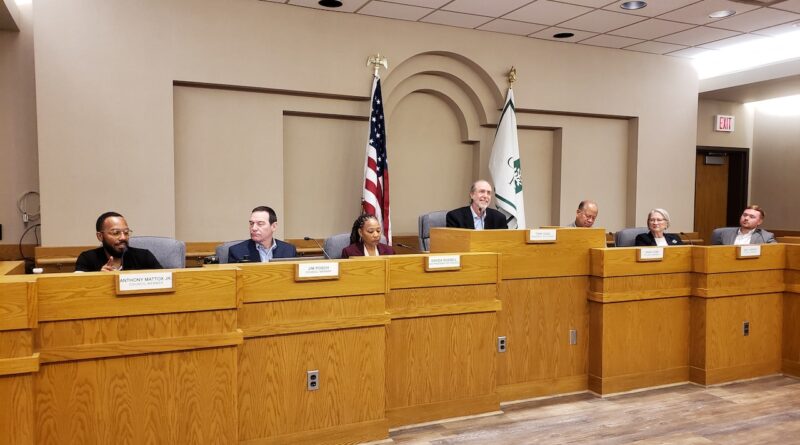Cleveland Heights council passes ‘safe space’ law for gender-affirming health care
CLEVELAND HEIGHTS, Ohio — In an already violent environment compounded by a relentless barrage of nasty political attack ads against transgender people, the City Council on Monday (Nov. 4) announced that the city is a “safe haven” for gender-affirming health care.
The unanimous resolution declares that the city strives to celebrate diversity and promote equity policies that make Cleveland Heights “a community that welcomes all people, including people of all races and backgrounds.”
The resolution cites research showing that gender-affirming health care “improves the physical and mental health and well-being of transgender, non-binary and gender-expanding individuals.”
In January, the Ohio General Assembly voted to override Governor Mike DeWine’s veto of Ohio House Bill 68, which bars children from accessing gender-affirming health care.
The American Civil Liberties Union (ACLU) appealed the decision of the Franklin County Common Pleas Court upholding the law and lifting the temporary restraining order.
Ohio’s 10th Circuit Court of Appeals heard oral arguments in September, and a decision is pending that could lead to another appeal from the other side.
Meanwhile, the city’s resolution states that “Cleveland Heights shall not prosecute or impose administrative penalties under any local law against any person or entity that provides, seeks, receive or assist (with) gender-affirming health care.”
At the final reading, the council heard again from Harley Rubin, who proposed the draft legislation with the help of Councilwoman Gail Larson.
“This is a very difficult time when we see (political campaign) ads constantly targeting us and attacking us,” Rubin told the court earlier.
Rubin believes that this decision could provide a starting point for creating “sanctuary cities” in Ohio.
“I want young people everywhere to know that they are not alone and there are people fighting for them,” said Rubin.
“It’s so hard when you’re the only weirdo you know.”
Larson said that when Rubin approached him asking the council to take on the current political climate, he told him he would be happy to help.
“And this decision shows the continued support of the court,” Larson said.
He noted that they started the year by passing legislation condemning Ohio House Bill 68 as discriminatory and harmful to transgender youth.
“For any transgender, non-binary and genderqueer people, you are safe here,” Larson said, thanking her colleagues for supporting the legislation.
Councilman Jim Petras thanked Larson for his work on the resolution and Rubin for his influence.
“With transgender people across the country under attack and millions of dollars being spent on anti-trans ads, this is important to me and many other people,” Petras said.
Ahead of the election, Mayor Kahlil Seren also thanked the council for pursuing it.
“It’s very clear, especially in Ohio, that there is a strong group of people who want to put us in boxes and define what we can be,” Seren said.
“And it’s disgusting.
“I want to thank you all for standing up to that,” Seren added. And it makes me proud to be in Cleveland Heights.
Anna Powaski said in the first reading that part of the safe space solution she values most is “prioritizing the enforcement of laws that seek to punish those who seek and provide gender-affirming care.”
He added that Cleveland Heights should “criticize and pay attention” to neighborhoods that may prioritize anti-gender-affirming care, “which may be used and removed from them.”
Since graduating from Case Western Reserve University, Sidney Negron plans to move to Cleveland Heights to continue receiving sexual health care through MetroHealth Medical Center.
“But all of this assumes that it can’t be stopped at the federal level, which we all know has been a great harm to the people of Ohio,” Negron told the court earlier.
“We are all affected by the recent attack ads.”
Social worker Stephanie Ash thanked the court Monday for bringing the law forward, noting that Ohio has also banned gender-affirming mental health care, which “violates our ethical standards.” .”
Drew Herzig said on Oct. 21 that he knew what it was like to ask for “gender information — before we had that time.”
Herzig believes that home security laws are now important, saying he knows what it’s like to feel like the world is hostile.
“And it was a long time before a political party decided to use trans-phobia and put a target on the backs of everyone in this country – and their families.”
Read more from Daily Edition.
#Cleveland #Heights #council #passes #safe #space #law #genderaffirming #health #care
